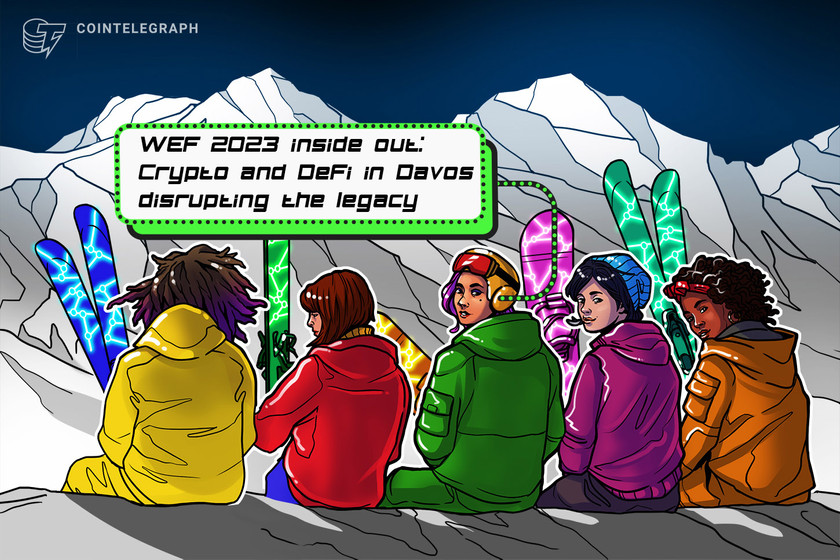TradFi and DeFi come together — Davos 2023


On this episode of Decentralize With Cointelegraph, the team reflects on their week in Davos covering the World Economic Forum as crypto and TradFi continue to collide.
Traditional finance, or TradFi, continues to explore the world of cryptocurrencies and blockchain technology, with the World Economic Forum holding more workshops and sessions for the sector in 2023. These were major themes seen by the Cointelegraph team as they covered the action throughout a busy week in Davos, Switzerland. In a late-night recording session, the team recapped everything readers need to know about the week for the new Decentralize With Cointelegraph podcast.
Cointelegraph editor-in-chief Kristina Lucrezia Cornèr reflected on her access inside the WEF compared with previous years in Davos. She also unpacked the ongoing synergies between traditional finance and decentralized finance, or DeFi, that were evident from the myriad crypto industry events taking place. Cointelegraph journalist Gareth Jenkinson was tasked with covering these crypto meet-ups, which took place at a number of shops refurbished for events down the central promenade in Davos.


Speaking to a number of industry insiders and TradFi participants, Jenkinson highlighted the ongoing cross-pollination between the sectors, while just a handful of crypto participants were involved in conversations inside the World Economic Forum.
From JPMorgan Chase CEO Jamie Dimon’s renewed skepticism toward Bitcoin (BTC) to the Cointelegraph team nearly getting stranded due to frozen diesel in their gas tank, Davos 2023 proved to be an entertaining and educational journey.
Davos has long been the spiritual home of the World Economic Forum, but recent years have seen a number of crypto and blockchain firms, projects and events rent space along the central road that runs to the WEF conference compound.
While crypto proponents mixed with TradFi members and curious visitors from both public and private institutions on the promenade, just a handful of crypto-related institutions took part in workshops inside the WEF.


Cointelegraph spoke with representatives from Circle and Ripple, who gave an inside view into the WEF’s changing perception toward the sector, while the heads of metaverse platforms The Sandbox and Upland also touched on the different perceptions both inside the WEF and outside of its walls.
Related: Cointelegraph heads to Davos for World Economic Forum
There seemed to be general consensus that the crypto and blockchain space was becoming increasingly talked about at the WEF, with the number of workshops and discussions on the sector increasing from May 2022.


Nevertheless, the co-mingling of TradFi and DeFi proponents was clear to see. Conventional investment funds, hedge fund managers and banks all drove discussions around cryptocurrency adoption and custody at the events Cointelegraph attended and moderated.
To hear Cornèr and Jenkinson reflect on changing perceptions and increased conversations between the old guard of traditional finance and the innovative cryptocurrency and blockchain ecosystem, listen to the first episode of Decentralize With Cointelegraph on Cointelegraph’s newly launched podcasts page — and be sure to check out the additional lineup of new shows. The episode is also available on Spotify.



